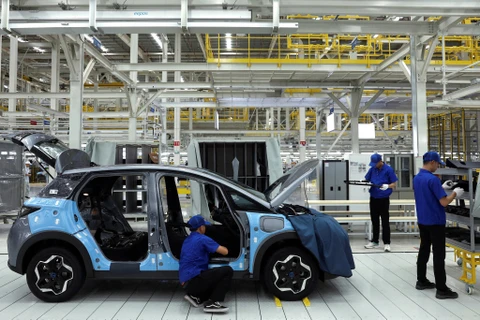
Kuala Lumpur (VNA) – Malaysia is on track to become a global medical technology (medtech) hub with its strong policies in attracting and executing the right investments, including the New Industrial Master Plan 2030 (NIMP 2030), said Minister of Investment, Trade and Industry Tengku Datuk Seri Zafrul Abdul Aziz.
Speaking at the International Medical Device Exhibition and Conference, the minister said that the Malaysian Government will continue with the industrial reforms to ensure the resilience and sustainability of the country's medtech growth.
According to NIMP 2030, Malaysia targets to strengthening its position as a medtech hub with the aims of safeguarding lives, contributing to ASEAN’s growth, as well as supporting the global health and wellness sector.
Minister Abdul Aziz emphasised that medtech plays an important role in enhancing healthcare delivery, improving patient outcomes, and driving economic development, and therefore, medtech is clearly an industry that transcends borders in addressing global health challenges.
The global medical devices market size was valued at more than 518 billion USD in 2023, and it is projected to grow from 542 billion USD in 2024 to almost 887 billion USD by 2032.
The official also pointed out that Malaysia’s medtech industry is well-supported by the right policies to grow sustainably through NIMP 2030.
In the coming time, Malaysia will study and develop policies to encourage industries to embrace Industry 4.0 technologies such as artificial intelligence, the Internet of Things, and robotics to drive economic complexity, efficiency and value-added growth.
Industries also need to foster more strategic partnerships, in which global medtech companies collaborate with domestic industry leaders to strengthen the local ecosystem and help Malaysian companies access global supply chains, he noted.
He added that Malaysia now has over 200 medical manufacturers, who collectively generated 6.37 billion USD in exports of medical devices in 2023. Thirty of those companies are multinational companies that have made Malaysia their manufacturing base, including renowned brands such as Abbott and B-Braun.
From January to September this year, Malaysia’s export of medical devices was valued at 6.15 billion USD, up 30% year-on-year./.






















